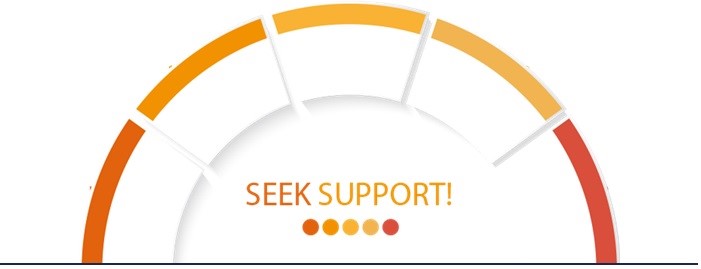
India | Japan | Italy | Spain | France | German | Vietnam | UAE
Dear Reader,
The Legal Department at UJA is delighted to impart certain legal knowledge as construed under Legal Chronicle to keep the readers aware of the recent updates and developments that revolve around various aspects of the law. Our ultimate goal is to enable our readers to develop a sense of familiarity with the complexities of Indian as well as International Law.
With our proven expertise and knowledge, the Chronicle shall uncover the intricacies of various branches of law like International Law, Labour Law, Intellectual Property, Alternative Dispute Resolution, Business, and Corporate laws.
In this edition of Legal Chronicle, have analyzed the Prevention of Sexual Harassment Act, 2013 and the challenges that its use poses in the legal field.
We hope that this edition creates a sense of enthusiasm for our readers and successfully delivers the plethora of legal knowledge as intended. In case you have any feedback or need us to include any information to make this issue more informative, please feel free to write to us at legal@uja.in
The Prevention of Sexual Harassment Act, 2013 is a piece of legislation that was introduced to establish and offer a safe and respectful work environment for women. The main objective of the POSH Act is to create awareness, proactive measures, and a fair and confidential grievance redressal process for aggrieved women who are subject to any kind of harassment at the workplace.
“Employee” means a person employed at a workplace for any work on a regular, temporary, ad hoc, or daily wage basis, either directly or through an agent, including a contractor, with or, without the knowledge of the principal employer, whether for remuneration or not, or working on a voluntary basis or otherwise, whether the terms of employment are express or implied and includes a co- worker, a contract worker, probationer, trainee, apprentice or called by any other such name;
“Sexual harassment” includes any one or more of the following unwelcome acts or behaviors (whether directly or by implication), namely:
“Workplace” includes:

Under the POSH Act, organizations with more than 10 employees are required to constitute an internal committee to act as a redressal mechanism for the aggrieved parties under the act. The committee is composed of a chairperson who must be a senior-level female employee in an organization, at least two other employees, and one external member with expertise in the field of sexual harassment or a social worker working for the cause of women.

The Prevention of Workplace Sexual Harassment Act mandates that the ICC investigate complaints of sexual harassment in the workplace with the same authority granted to a civil court under the Code of Civil Procedure, 1908 when conducting a lawsuit These powers include: i. calling someone to appear and testify; ii. demanding the production and discovery of documents; and iii. any other prescribed subject.
The employer is responsible for the following obligations:
If an aggrieved woman wishes to submit a complaint, she must submit six copies of the complaint, together with supporting documents, names, and addresses of witnesses, to the ICC within three months after the incident, or, in the case of a string of incidents, three months after the latest incident. The ICC may extend the timeline for filing a complaint for written reasons for a period of three months. The law also provides for friends, relatives, colleagues, psychologists, and psychiatrists to file complaints in situations where an aggrieved employee cannot make the complaint due to physical incapacity or mental incapacity.
Appellant: Aureliano Fernandes
Respondent: State of Goa and Others
Brief Facts: The Goa University initiated an inquiry against the appellant based on complaints from students. An internal committee was formed, and the committee passed an ex parte order and terminated the appellant’s service with the university. The appellant approached the Bombay High Court (Goa Bench), arguing that he was not provided a reasonable opportunity of a fair trial and was dissatisfied with the decision of the Bombay High Court in upholding the committee’s decision.
The appellant appealed to the Supreme Court, which observed that there was a violation of the principles of natural justice in the inquiry conducted by the internal committee at Goa University and lapses in the enforcement of the Sexual Harassment of Women at Workplace (Prevention, Prohibition, and Redressal) Act, 2013.
The Hon’ble Supreme Court of India has issued the following directions for the enforcement of the Act:
The Union of India, all State Governments, and Union Territories are directed to undertake a time-bound exercise to verify whether all the concerned Ministries, Departments, Government organizations, authorities, Public Sector Undertakings, institutions, bodies, etc. have constituted ICCs/LCs/ICs as per the provisions of POSH Act.
It shall be ensured that necessary information regarding the constitution and composition of the ICCs/LCs/ICs, details of the designated person(s), and the procedure prescribed for submitting online complaints shall be made readily available on the website of the concerned Authority/Functionary/ Organisation/ Institution/Body.
The employers/ authorities shall take immediate necessary steps to ensure that the members of the ICCs/LCs/ICs are familiarised with their duties.
The authorities, management, and employers shall regularly conduct orientation programs, workshops, seminars, and awareness programs to upskill members of the ICCs, LCs, and ICs and to educate women employees and women’s groups about the provisions of the Act, the Rules, and relevant regulations.
It is essential for commercial organizations to implement their POSH policy and comply with the provisions of the POSH Act. The organisation shall also provide training to its employees and internal committee members to make them aware of their duties and rights under the Act.
Quid Pro Quo harassment occurs when a person trades, or tries to trade, job benefits for sexual favours. It therefore occurs between an employee and an individual who has the ability to grant or withhold any job related benefits.
The ICC is required to complete the inquiry within the stipulated period of 90 days.
The Presiding Officer and every Member of the Internal Committee shall hold office for such period, not exceeding three years, from the date of their nomination as may be specified by the employer.
Where the aggrieved woman is unable to make a complaint on account of her physical or mental incapacity, death, or otherwise, her legal heir or such other person as may be prescribed may make a complaint under this section.
The employer shall include in its report the number of cases filed, and their disposal under this Act in the annual report of the organisation or where no such report is required to be prepared, intimate such number of cases, if any, to the District Officer.
The due date to file the report with the District Officer is 31st of January for every year for the preceding calendar year.
According to the POSH Act, an organization may be fined up to Rs. 50,000 for failing to form an IC and for failing to comply with other terms of the Act. If the violation is committed again, the penalty may be increased, and regular non-compliance may result in the cancellation of the business license.
As per the Act, the employer is obligated to display the order constituting ICC at any conspicuous place in the workplace.

This document is intended to provide general information and is not intended to be substituted for any legal or professional advice. This document is meant exclusively for informational purposes and not for advertising or solicitation. UJA has made significant efforts to ensure that the information contained in this document is accurate and reliable. However, the information herein is provided “as is” without warranty of any kind. UJA hereby disclaims all responsibility and liability, whether stated or implied, for the accuracy, validity, adequacy, reliability, or completeness of any information provided under this document. In no event shall UJA be held liable for any losses or damages whatsoever incurred as a result of using this document.
